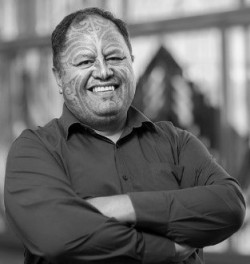Taumata Aronui: Searching for the best possible outcomes for Māori
Taumata Aronui: Searching for the best possible outcomes for Māori
Taumata Aronui was appointed in 2019 to provide independent advice on how tertiary education can better respond to the needs of Māori learners, communities, and employers, and help improve learner and community outcomes.
Taumata Aronui was appointed in 2019 to provide independent advice on how tertiary education can better respond to the needs of Māori learners, communities, and employers, and help improve learner and community outcomes.

Wayne Ngata
A few weeks back, they issued their landmark report “Manu Kōkiri – Māori Success and Tertiary Education: Towards a Comprehensive Vision”. RoVE News talks to Taumata Aronui chair Wayne Ngata about the ‘think piece’ and what we can expect to see from the rōpū next.
RoVE News: Even though you were set up as part of RoVE, your remit has always been wider than just for vocational education and training. How did you approach your task?
Wayne Ngata: Yes, our remit is wider than that – it covers all tertiary education. And while we were trying to develop our thinking, we were getting a number of requests from agencies and educational institutions around what our thinking was. So it was trying not to build the plane while flying. We needed time to just think and put our ideas on paper, which we did. Hence Manu Kōkiri.
RoVE News: You were set up as an independent body, rather than a representative one. How did that influence your work?
Wayne Ngata: Not being representative, in terms of representing specific organisations or structures, helps. It meant there was not so much on our shoulders. It really helped to free our minds in our thinking. But we are of course connected, have been connected, in the tertiary sector and the wider community for decades, so, importantly, we are representing kaupapa. We are ultimately representative of our people, of Māori wellbeing.
RoVE News: What do you see as some of the key issues in tertiary education for Māori?
Wayne Ngata: We have had generations of under or non-investment in Māori and mātauranga Māori more specifically, so it will take some time to build this back up, that is, to build content and provision of quality tertiary education for Māori. In terms of mātauranga Māori, there are quite a few initiatives and programs that exist now that are operating in different places, and we are suffering from a non-coherence of activities that are happening in the sector. That is a concern for us because, in a in a nutshell, people or organisations might be doing their own thing. Everyone does their own, but is it going somewhere? We have to ask ourselves, are we driving towards the best possible outcomes for Māori? I do not think we have got our partnership right yet within Maoridom in this respect.
RoVE News: In terms of where Manu Kōkiri will eventually lead, what can we expect to see? Could there be something similar to the health sector, for example, where a stand-along Māori Health Authority is being set up?
Wayne Ngata: There are stakeholders in the education system who push and are pushing and have pushed for some time for some autonomy or more autonomy in the education system. That's still up for debate. But I do think it's clearly understood that, if there was a system that was designed by Māori for Māori, for the benefit of Māori, that particular type of system has been shown and is being shown to produce successful outcomes for Māori.
RoVE News: What is next for Taumata Aronui?
Wayne Ngata: We had some input from others when we prepared Manu Kōkiri, such as students, deputy vice chancellors Māori, the three wananga - we now have to socialise the report with these groups and work out where their thinking is. And we want to communicate this report widely. So we are working with the Ministry of Education to develop communication products, to socialise Manu Kōkiri with different audiences. And we want to know, what is the appropriate mechanism to take this whole kaupapa forward? What is the vehicle for implementation? Sometimes the thinking requires some thinkers, but the doing requires some doers. We need to think about that and work that out with the Minister. We want to work out what the next three to five years look like.
More information on Taumata Aronui, its membership and outputs (incl. Manu Kōkiri) is available on the TEC website here.